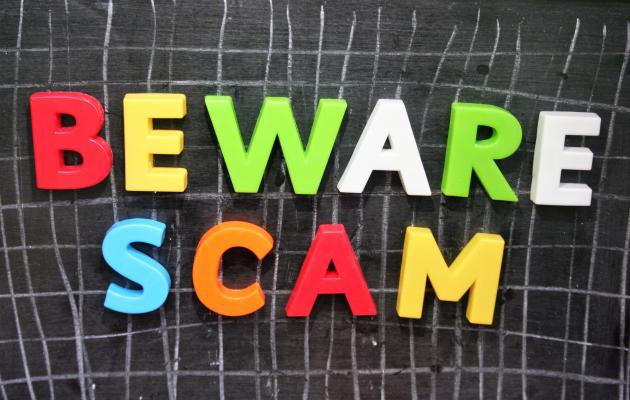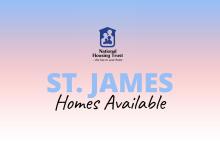How to Avoid Rental Property Scams: 9 Common Red Flags
- By Tanya Thompson
- Jun 24, 2017
- Updated Jul 8, 2017
-
8m
-
4
- RSS

Are you looking at properties for rent? If so, watch out for persons who only want to take advantage of your desire to find somewhere decent to live. These sorts of rental property scams happen all across the world, including first-world countries, so Jamaica is no exception. The best advice we can give you is to always be on the alert.
More specifically, after taking a look at the experiences of others, we have identified a few common red flags that you can look out for, so that you are not the latest victim of these kinds of dups.
- The Rental Price Is Too Good To Be True
We’ve all heard the saying, if it’s too good to be true, it probably is. So if you’re looking for properties for rent in Barbican and you find a place going for JMD $20,000 per month instead of the JMD $60,000 per month you were expecting, then something’s wrong. Either there’s a scam involved, or the property is not of the standard that you’re expecting.
Check it out if you like, but don’t hesitate to disregard the particular property for rent if you catch a hint of anything else that isn’t as it should be. It’s unlikely that you’ve been that lucky. - Unable To View Rental Property In Person
If someone’s listed a property for rent and can’t find the time to physically show you into the rental property, move on. This is true especially if you’ve never get to meet the advertiser face-to-face because they only communicate with you via email, phone, Skype or other indirect contact methods. Don’t even bother to give that property any further consideration. More than likely you’re dealing with a scammer. Always see the inside of a rental property prior to making any payments to close the dealWhat are the changes that you’d have owner so busy that they can’t find the time to get their property rented, or an agent who can’t be bothered to turn up so that they can get their commission? - Your Personal Information Is Requested
If you’ve been asked to submit any personal information (e.g., bank statements, copies of your personal identification documents) after you’ve responded to an advert for a property for rent, walk away. It doesn’t matter if you’ve already seen the property or not. There is no lawful reason for a potential landlord to ask you for such information. If you are really eager to get that rental property, you could perhaps opt to meet the advertiser in person to show them your documents but do not handover the originals or any copies. - The Lease Agreement is Dodgy
First things first, get a copy of the lease agreement before you hand over any money. Next, be concerned if you get a lease agreement which has grammatical mistakes all over, doesn’t make sense or favours the landlord too much.
If the advertiser is a property owner, it might still be legit, since the private owner might have just picked up something they found online. You should still be wary and move on if you sense that anything else is off.
If you’re dealing with the “property manager” or “real estate agent”, you’re more than likely being conned. Don’t give that person the benefit of the doubt. - Upfront Money Is Requested
If you’ve been asked for payment of the deposit or first-month rent, prior to getting the keys for the property, be wary. This is a serious scammer tactic.
If you’ve not even had a look of the property for rent, or had a friend, family member or independent third-party view it for you, there’s definitely cause for concern. Personally, I’d stop any further discussions right there.
If you’ve already taken a look, hold off on any payments until you’ve made arrangements to obtain the keys. If you have any doubts or are extremely cautious like me, you may want to either make the payment in person or pay by bank cheque or money order at the same time you meet your new landlord to receive the keys. Don’t send any money via Western Union, MoneyGram, or other money transfer services. If the individual doesn’t want to accommodate your request, find somewhere else to live. - The Advertiser is Pushing Too Hard
One well-used trick we’ve heard of is for the advertiser to mention that there’s a lot of interest in the rental property, and that you’ll need to provide a deposit to secure the place. They’re only trying to play on your desperation to find somewhere to live. Don’t fall for this con. - You Cannot Confirm the Identity of the Property Owner
One particular rental property scam is for persons to break into a property while the owner is away, and they pretend to be the owner so that they can “rent” the place to unsuspecting victims.
In Jamaica, we’ve little mechanisms to investigate the authenticity of property owners who advertise properties for rent. You can get a copy of the Certificate of Title, but that doesn’t actually give you much more than the actual names of the property owners. However, one thing you could do quite easily is to talk to your “new neighbours”.
Jamaica is very small, and if no one in the neighbourhood can’t confirm the identity of the property owner, something is very wrong. If the property owner has assigned someone to act on his / her behalf, more than likely the neighbours would know that as well. If the rental is in a secured area, even the security guard would know if the listing is legit. If the property owner (or their nominee) is not who you’ve met, take your legs straight to the nearest police station. - You Cannot Confirm the Property Manager or Real Estate Agent
It is a very simple process to check up on legitimate property managers and real estate agents. You should be able to find them through either the Real Estate Board, or the Jamaican Realtors Association of Jamaica.
If you complete a search, you should find the agent’s contact numbers, email address, their license number and if it is current, the company that they represent and the pertinent contact details, and sometimes even the agent’s photo. You can even find out if they are authorised to deal with properties for rent.
If there’s a photo and you’ve already met the individual, you’ll know by now if you’re being scammed.
If you don’t find a picture of the agent, go the extra mile. Use the contact numbers you’ve found on the Real Estate Board’s website, and give the person a call to find out if they are the same person that you’ve been dealing with.
If you find out that it’s all a con, inform the police and stay away from that scammer. - You find Conflicting Information about the Property or Advertiser through Online Searches
- Some scammers search the web to find property photos and property descriptions legitimately being used elsewhere as their starting point. As a result, you might just be able to find out if that was done in your case.
- Search online to see if the property address really exists.
Find out if the property has been listed for sale or for rent by another party. - Search for the name of the individual who’s listed the property to see what comes up. Perhaps you’ll find that the same person has listed adverts outside of Jamaica.
You can even search for bits and pieces of the descriptive text in the ad to see if it has been used elsewhere.
In Conclusion
Don’t get stung. If your instinct tells you that something is wrong, it probably is. Be cautious and diligent and look for those common sense red flags that we’ve identified. Don’t let the fraudsters win.
If you need any help in assessing whether or not you’re being scammed when trying to find a property for rent or sale, engage us at Nohuts.com to do it for you. Contact us today.
This article is for general information purposes only and does not constitute legal advice.



